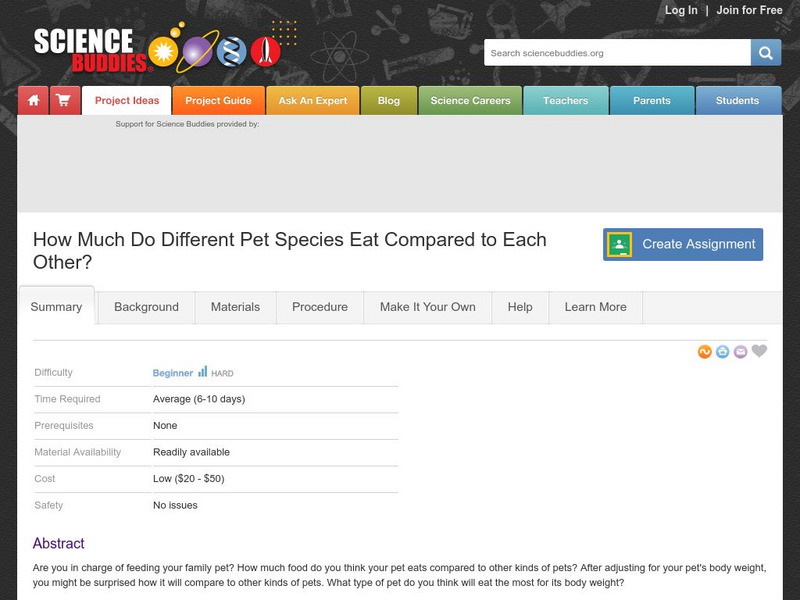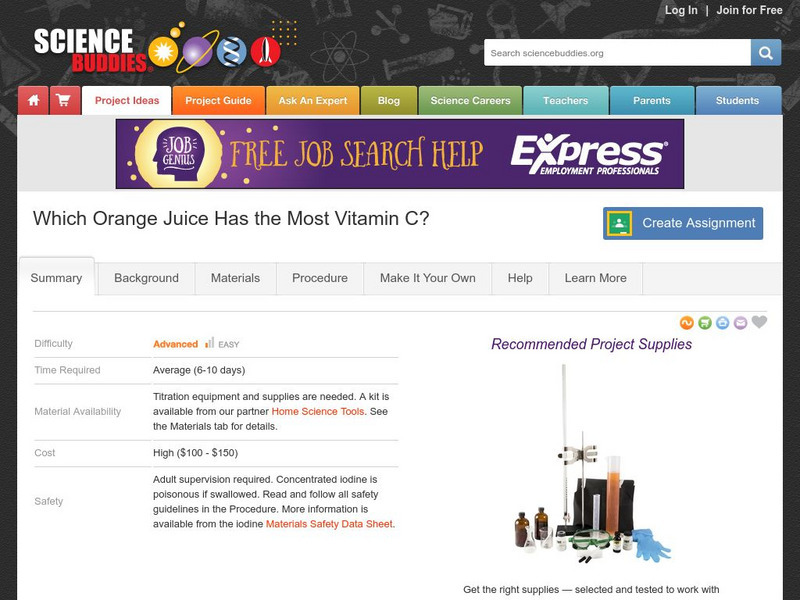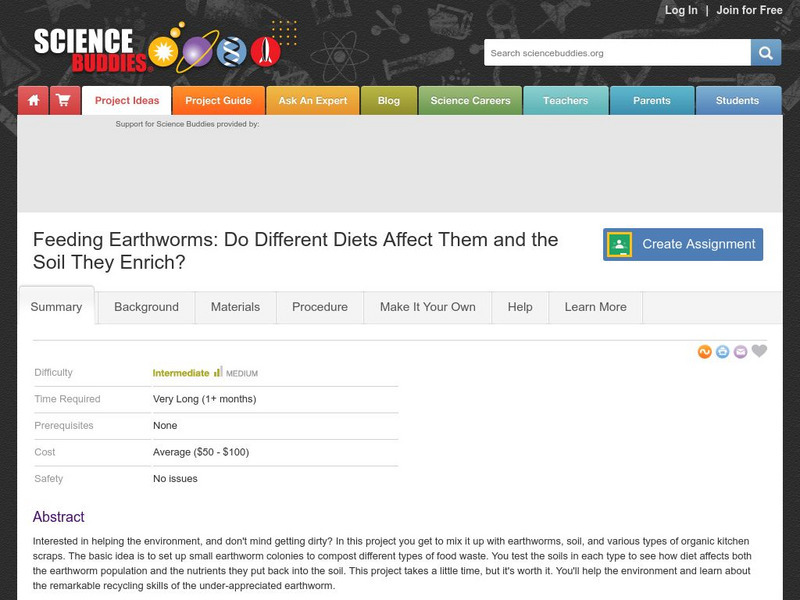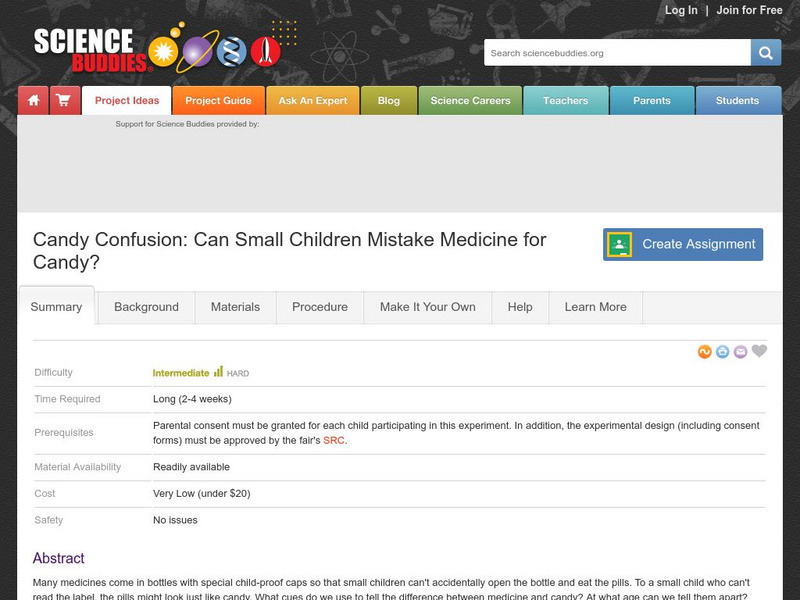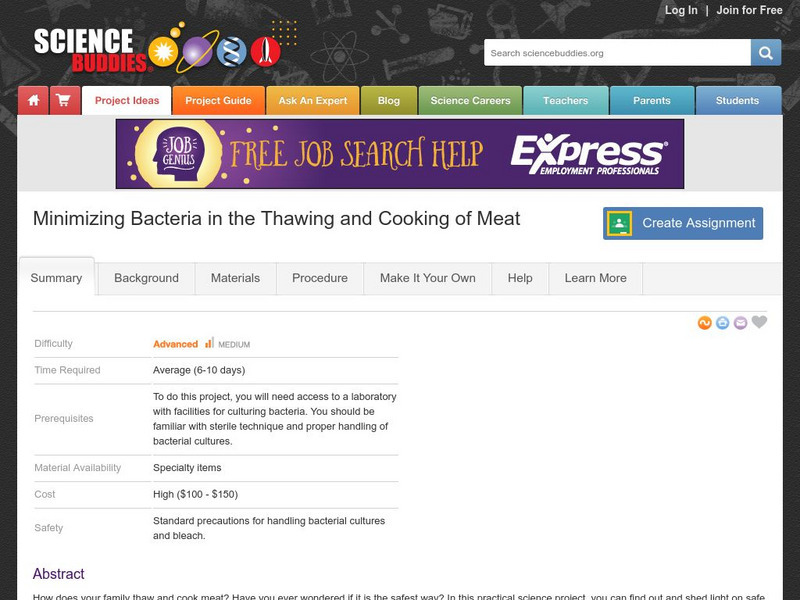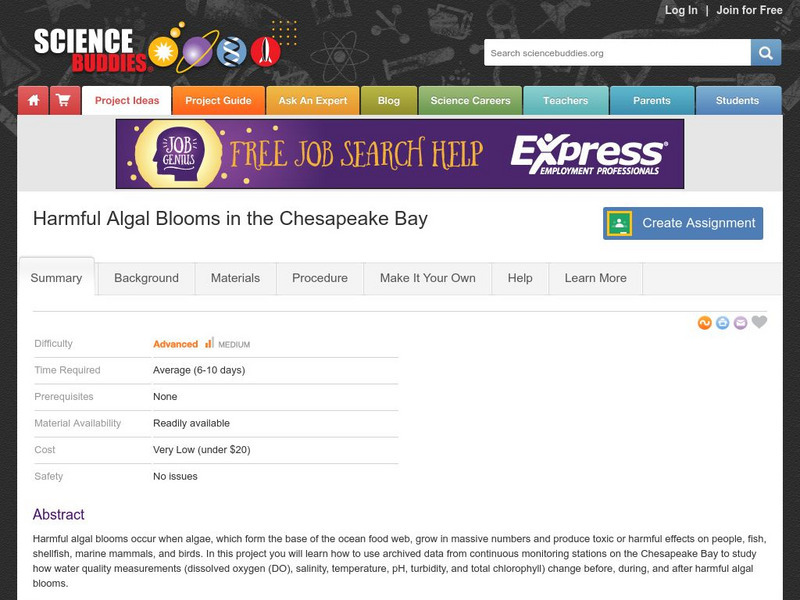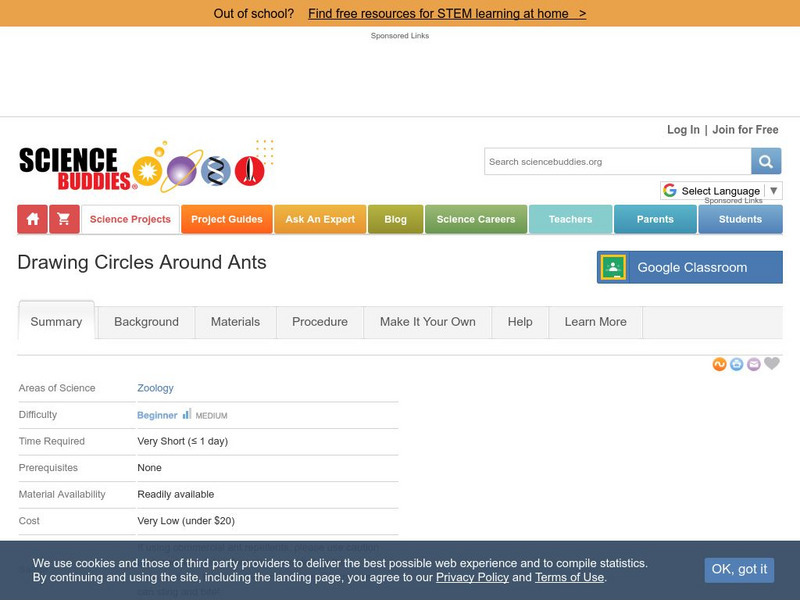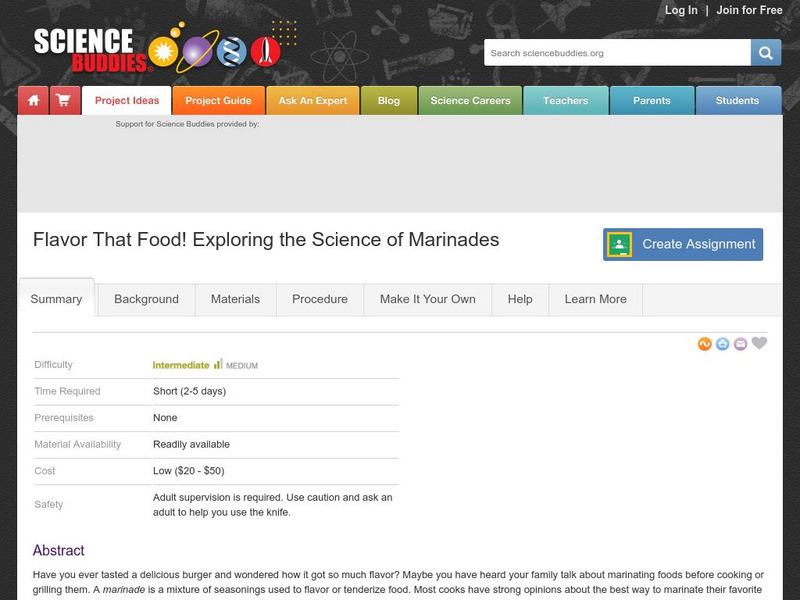Science Buddies
Science Buddies: Determining Iodide Content of Salt
In this week long "kitchen chemistry" project you will use chemicals from the supermarket to test for the presence of iodine and iodide in salt. These are common micronutrients added to some preparations of table salt. A materials list,...
Science Buddies
Science Buddies: How Much Do Different Pet Species Eat?
How much food do you think your pet eats compared to other kinds of pets? In this experiment you will compare the food intake of your family pets to find out which pet eats more for its body weight.
Science Buddies
Science Buddies: Which Orange Juice Has the Most Vitamin C?
In this project you'll learn how to measure the amount of vitamin C in a solution using an iodine titration method. You will hypothesize which juice will contain the most vitamin C, and then compare the amount of vitamin C in three...
Science Buddies
Science Buddies: Get Down and Dirty: How Does Soil Change With Depth?
What covers less than 10% of the Earth's surface, yet is a vital natural resource for terrestrial life? What filters ground water and supports most of our food production, not to mention the production of building materials and paper?...
Science Buddies
Science Buddies: How Does Packaging Affect the Ripening of Fruit?
Why do different types of fruits come packaged in different ways? In this project, you will experiment with different ways of packaging fruit to see if it has an effect on the freshness of the fruit. Will a different kind of packaging...
Science Buddies
Science Buddies: How Diets Affect Earthworms and the Soil They Enrich
In this environment-oriented experiment, you will mix it up with earthworms, soil, and various types of organic kitchen scraps. The basic idea is to set up small earthworm colonies to compost different types of food waste. You test the...
Science Buddies
Science Buddies: Candy Confusion: Can Small Children Mistake Medicine for Candy?
Many medicines come in bottles with special child-proof caps so that small children can't accidentally open the bottle and eat the pills. To a small child who can't read the label, the pills might look just like candy. This project helps...
Science Buddies
Science Buddies: Minimizing Bacteria in the Thawing and Cooking of Meat
Here's a practical project that sheds light on safe practices in the kitchen. Use this information to determine which method of defrosting meat is safest and which method of cooking kills the most bacteria.
Science Buddies
Science Buddies: Project Ideas: Understanding How Food Becomes Rancid
In this cooking and food science fair project, the student will determine how light and air can oxidize fat in potato chips and cause the chips to go rancid. The Science Buddies project ideas are set up consistently beginning with an...
Science Buddies
Science Buddies: Effects of Food Preservatives on the Growth of Microorganisms
The problem of protecting food from spoilage has been with us since prehistoric times. The solutions to this problem have changed with advances in technology and knowledge about what causes food to spoil. This project uses liquid...
Science Buddies
Science Buddies: How Food Supplements Affect Weight Gain of Juvenile Mice
As your mom and dad always tell you, a healthy diet is important to good health. This project is designed to see what happens to mice when they are allowed to load up on sugary snacks. Do you think that they will gain excess weight? Do...
Science Buddies
Science Buddies: Mag Nificent Breakfast Cereal
You will devise a way of testing foods for supplemental iron additives in this experiment provided by Science Buddies. Then you will use your design to test different breakfast cereals to see how much iron they contain. The goal is to...
Science Buddies
Science Buddies: Harmful Algal Blooms in the Chesapeake Bay
Harmful algal blooms occur when algae, which form the base of the ocean food web, grow in massive numbers and produce toxic or harmful effects on people, fish, shellfish, marine mammals, and birds. In this project you will learn how to...
Science Buddies
Science Buddies: Yeast Reproduction in Sugar Substitutes
There's nothing quite like the smell of fresh-baked bread to make your mouth water. As any baker can tell you, you can't bake bread without yeast. This project makes clever use of bread dough to measure yeast reproduction three different...
Science Buddies
Science Buddies: Where Do Lizards Go for Lunch?
You've probably heard about differences between the left brain and the right brain in people. One hypothesis has it that brain lateralization evolved as a survival mechanism in animals with eyes on the sides of their heads. One eye could...
Science Buddies
Science Buddies: Do Oranges Lose or Gain Vitamin C After Being Picked?
Are oranges highest in vitamin C when they are fresh from the tree (or, in a pinch, the grocery shelf)? In this project you'll learn how to measure the amount of vitamin C in a solution using an iodine titration method.
Science Buddies
Science Buddies: Drawing Circles Around Ants
Do ants sometimes ruin your picnic? There are some chemical ant repellents you can spray to keep them away, but who wants to spray poison all over their food? In this experiment you can investigate some less toxic solutions that may be...
Science Buddies
Science Buddies: Leaves and Light
Leaves use sunlight to make food for the plant. Sunlight contains all of the colors of the rainbow, but are all of those colors used by the leaf? Can you find out if some colors of light are more important than others?
Science Buddies
Science Buddies: Go and Stop? Ant Traffic Signals
Have you ever stopped to watch a trail of ants moving back and forth between a food source and their nest? Have you ever wondered how they establish their trail? You've probably read that ants use chemical signals to communicate with one...
Science Buddies
Science Buddies: Flavor That Food! Exploring the Science of Marinades
Have you ever tasted a delicious burger and wondered how it got so much flavor? Maybe you've heard your family talk about marinating foods before cooking or grilling them. A marinade is a mixture of seasonings used to flavor or tenderize...
Science Buddies
Science Buddies: Project Ideas: What Makes Foams Stand Up Straight
In this food science fair project, students will determine which foods make good edible foams, with high volume and longevity. The Science Buddies project ideas are set up consistently beginning with an abstract, objective, and...
Science Buddies
Science Buddies: Project Ideas: Perfecting Pastries: Role of Fats
In this cooking and food science fair project the student will investigate the effect that fat and its temperature have on the taste and texture of pastry shells. The Science Buddies project ideas are set up consistently beginning with...
Science Buddies
Science Buddies: Project Ideas: How Much Water Is Absorbed by Dried Beans?
In this cooking and food science fair project, measure how the water content of dried beans changes with time. The Science Buddies project ideas are set up consistently beginning with an abstract, objective, and introduction, followed by...
Science Buddies
Science Buddies: Project Ideas: Save Those Spoiling Strawberries!
In this food science fair project, the student will determine if thermotherapy can inhibit strawberries from becoming moldy and decaying. The Science Buddies project ideas are set up consistently beginning with an abstract, objective,...
Other popular searches
- Science Project Food Apples
- Science Project Food Chain
- Science Project Food Waste
- Science Project Food Rice
- Food Science Fair Projects
- Science Project Food Decay
- Science Projects Food Chain

